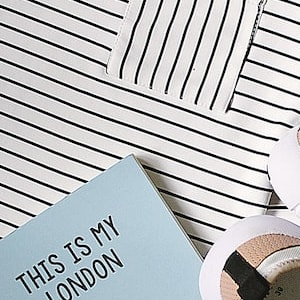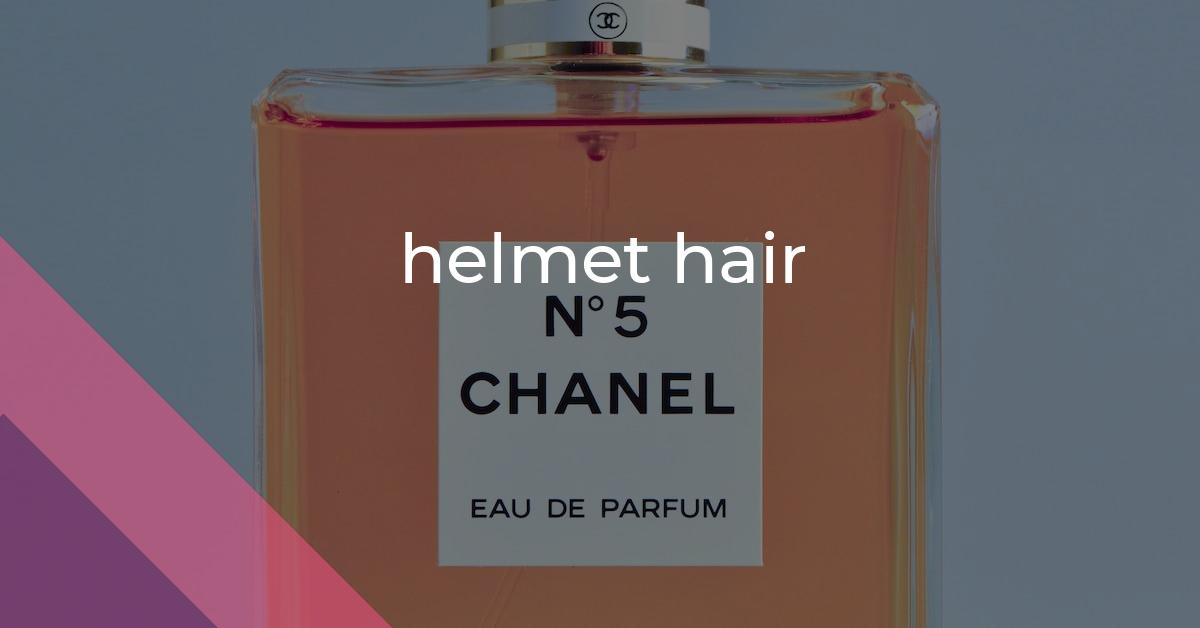helmet hair: Idiom Meaning and Origin
What does ‘helmet hair’ mean?
The idiom helmet hair refers to unruly or flattened hair that is a result of wearing a helmet or other headgear for an extended period of time.

Idiom Explorer
The idiom "let one's hair down" means to relax or be less formal or restrained, often in a social setting.
The idiom "hide nor hair" means to not see any sign or trace of someone or something.
The idiom "head to toe" means completely or fully, often referring to being covered or dressed from head to toe in something.
The idiom "head-the-ball" refers to a person who is unpredictable, scatterbrained, or lacks focus. They often make impulsive decisions or behave in a foolish manner.
The idiom "head-scratching" refers to a situation or problem that is confusing or puzzling, often causing people to think deeply or scratch their heads in an attempt to understand or find a solution.
The idiom "head and shoulders" means to be significantly better or superior compared to others in a particular area or aspect.
The idiom *have one's wig snatched* means to be caught off guard or surprised, typically in a humiliating or embarrassing way.
The idiom "have one's ears lowered" means to have a haircut or to get one's hair trimmed. It is a euphemistic way of referring to getting a haircut, particularly one that involves cutting the hair above the ears.
When someone has *hat hair*, it means their hair looks messy or flattened after wearing a hat. This can happen due to the static electricity or pressure from the hat. It's a common occurrence and often results in a hairstyle that needs fixing.
Revealing the Mystery
The idiom "helmet hair" refers to the disheveled, flat, or misshapen hair that is commonly experienced after wearing a helmet. This idiom originates from the literal interpretation of the term, as wearing a helmet can cause the hair to become compressed and tangled, resulting in an unattractive or unwanted appearance.
The idiom is widely used in the United States, particularly among individuals who participate in activities that require helmet use, such as motorcycling, biking, and skateboarding. It is also used colloquially to describe any situation where the hair appears flattened or messy, regardless of the presence of a helmet. The term "helmet hair" is deeply ingrained in popular culture and is often used humorously or self-deprecatingly.
One possible explanation for the popularity of this idiom is the relatability of the experience. Many individuals have had the firsthand experience of wearing a helmet and subsequently dealing with the aftermath of unruly hair. This shared experience allows for a strong connection and understanding among people who use the idiom.
The idiom "helmet hair" can also be seen as a reflection of societal beauty norms. In many cultures, there is an emphasis on having sleek, well-groomed hair, and the appearance of "helmet hair" goes against these ideals. This contrast between the desired and actual state of the hair contributes to the humor and relatability of the idiom.
Furthermore, the idiom can be used metaphorically to describe situations where someone's appearance is negatively affected by external factors. For example, someone may say they have "helmet hair" after being caught in the rain or spending prolonged periods in a windy environment. This expanded usage of the idiom demonstrates its versatility and adaptability in everyday language.
Another related idiom to "helmet hair" is "hat hair." Similar to helmet hair, hat hair refers to the flattened or misshapen hair that occurs after wearing a hat. This can happen when a hat compresses the hair against the scalp, causing it to lose its volume and natural shape. Like helmet hair, hat hair is often seen as unattractive or unwanted, and individuals may use the phrase humorously or self-deprecatingly to describe their post-hat appearance.
Additionally, another related idiom is "brain bucket." This term is often used colloquially to refer to a helmet, particularly one worn for protective purposes during activities such as biking or skateboarding. The term "brain bucket" is a playful and somewhat irreverent way of highlighting the helmet's function of protecting the wearer's head, particularly the brain. While not directly related to the appearance of the hair, the term "brain bucket" is associated with the use of a helmet and can be mentioned in the context of discussing "helmet hair."
Another idiom related to "helmet hair" is "bad hair day." This phrase refers to a day when one's hair is particularly unmanageable, unruly, or otherwise not looking its best. It can be used to describe situations in which individual's hair becomes disheveled or difficult to style, regardless of the presence of a helmet. This idiom is often used humorously and self-deprecatingly, similar to how "helmet hair" is used.
Lastly, the idiom "hair out of place" is also related to "helmet hair." "Hair out of place" is used to describe the appearance of hair that is disheveled or not in its usual position. This can happen after wearing a helmet or engaging in other activities that affect the hair's appearance. The phrase implies that the hair looks untidy or messy due to its position being altered or disrupted. Similar to "helmet hair," this idiom can be used humorously or self-deprecatingly to describe situations where the hair does not look its best.
While the idiom "helmet hair" is well-established and widely understood, it is important to note that its usage may vary across different regions and communities. Additionally, the idiom's connotation can also vary depending on context and the individual's perception of their own appearance. Therefore, understanding the idiom's nuances and cultural references is crucial for effective communication.
The idiom "helmet hair" has its origins in the literal description of hair that appears disheveled or misshapen after wearing a helmet. It is widely used in the United States, particularly in contexts involving helmet-wearing activities. The idiom reflects shared experiences, societal beauty norms, and can be metaphorically applied to other situations involving unfavorable appearance. While it is important to understand regional variations and context, the idiom remains a pervasive and relatable aspect of everyday language.
Example usage
Examples:
- She always wears a hat to cover up her helmet hair after riding her bike to work.
- He quickly fixed his helmet hair in the bathroom mirror before heading into the meeting.
- After wearing a motorcycle helmet for hours, his hair was a mess and he had a classic case of helmet hair.
More "Grooming" idioms



